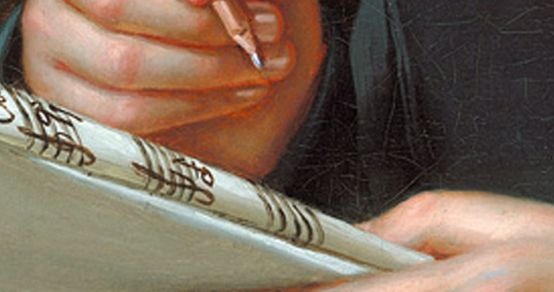Symphony No. 3 "Eroica"
Beethoven every Friday: to mark his 250th birthday, we take a look at one of his works every week. Today it's the Symphony No. 3 in E flat major "Eroica".

Beethoven had long since realized that the French Revolution, originally striving for freedom, equality and fraternity and directed against the feudal corporative state, had come to an end when a Leipzig publisher made him an untimely proposal. He was to write a "revolutionary sonata" for an (unnamed) client, possibly depicting the events programmatically, but at least reflecting on them. His rejection on April 8, 1802 was full of indignation: "Is the devil riding you, gentlemen? - To suggest to me to make such a sonata - at the time of the revolutionary fever - that would have been something like this, but now that everything is trying to get back into the old groove, Buonaparte has concluded the Concordat with the Pope - such a sonata? - If it were still a Missa pro sancta maria a tre vocis or a Vespers etc - now I would like to take the brush in my hand - and write a Credo in unum with big pound notes - but dear God such a sonata - in these new Christian times - hoho - leave me out - nothing will come of it ..."
It is not possible to determine Beethoven's specific attitude to the political circumstances of his time, or even whether he sympathized with republican ideas. Apparently perplexed by the French expansionist policy, he composed a Farewell song to Vienna's citizens WoO 121 (referring to the Corps of Viennese Volunteers), followed by a War song of the Austrians WoO 122 (1797). Only a few years later, Napoleon was held in the highest esteem as First Consul in Vienna: Beethoven was particularly enthusiastic about his statesmanlike farsightedness and the establishment of a civil society with civil law (including the Civil Code). In the end, he even considered moving to Paris.
However, after it became public in Vienna that Napoleon had crowned himself emperor in Paris on December 2, 1804, Beethoven completely rejected these idealistic plans. The rededication of Symphony No. 3 in E flat major op. 55, as related by his friend Ferdinand Ries in an anecdote (which cannot be proven with any certainty), is also connected to this: "Beethoven had Buonaparte in mind for this symphony, but this one when he was still First Consul. ... Both I and several of his close friends have seen this symphony, already copied out in score, lying on his desk, with the word 'Buonaparte' at the top of the title page and 'Luigi van Beethoven' at the bottom, but not a word more. ... I was the first to bring him the news that Buonaparte had declared himself emperor, whereupon he flew into a rage and exclaimed: 'He is nothing more than an ordinary man! Now he will also trample all human rights underfoot, indulging only his ambition; he will now place himself higher than all others, become a tyrant! Beethoven went to the table, took hold of the top of the title page, tore it right through and threw it on the ground. The first page was rewritten, and only then was the symphony given the title: 'Sinfonia eroica'."
Further historical events show that Beethoven was right in this assessment. After Vienna had been occupied by Napoleon without a fight on November 13, 1805, the city was only retaken after heavy artillery fire on the night of May 11-12, 1809. Beethoven spent these hours in the cellar of his brother Kaspar Karl (1774-1815); to protect his failing hearing, he is said to have covered his ears with pillows.
Listen in!








